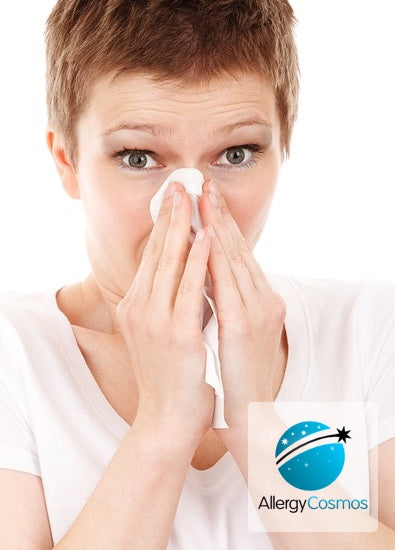Pediatric allergist Dr. Adam Fox explained how to deal with allergic rhinitis to an audience of people suffering with hay fever at this year's Allergy Show. There are four main approaches to managing allergic rhinitis:
- Allergen avoidance
- Medication
- Desensitisation
- New and emerging therapies
Allergen Avoidance
Pollen gets everywhere so this is one allergen that’s especially hard to avoid. And the recent years have been years with, especially high pollen counts in many places. Aim to keep pollen out of your bedroom at the very least. ‘A lot of my patients find washing their hair when they come indoors useful,’ said Dr. Fox. It’s also a good idea not to go into your bedroom in outdoor clothes - get changed into relaxing or night time clothes first.
Cat allergen is very light and easily stirred up into the air. It can persist for up to two years after the animal has left the premises - and some people are so sensitive to cat allergen that they will react even if they sit next to someone who owns a cat (at school, for example). Advising on house dust mite avoidance, Dr. Fox said that using a vacuum cleaner (such as a leakage-free allergy vacuum cleaner with a HEPA filter) on a carpet could be as effective as replacing that carpet with hard flooring. As with pollen, the focus with HDM allergen should be on removing it from the bedroom. A high-quality mattress cover can help here (do your research, because the quality of products on the market does vary a lot, and most allergy bedding is not breathable so it can get very warm and sweaty).
We would also recommend as part of allergen avoidance to use allergy friendly cleaning products as well as a high-quality allergy air purifier.
Medication
Always go for a long-acting non-sedating antihistamine to control sneezing and other allergic rhinitis symptoms said Dr. Fox. Too many people mistakenly go for the short-acting sedating antihistamine which will produce drowsiness (already bad enough if your hay fever interferes with sleep). For a blocked nose, choose a nasal steroid. ‘This is probably the most effective medication we have for rhinitis,’ commented Dr. Fox, adding that parents need not to worry about the safety of these drugs. ‘Take medication regularly and start before the onset of hay-fever symptoms for maximum effectiveness.’
Around 80% of people suffering with asthma also have allergic rhinitis. The current thinking is that the two conditions are closely linked because they affect the bottom (asthma) and top (rhinitis) of what is essentially a continuous ‘united airway’ system. Effective rhinitis treatment has now been shown to reduce the risk of hospitalisation for asthma, so it is worthwhile finding the medication that works best for you. If antihistamines and nasal steroids do not do the job, then there is prescription medicine used for asthma and allergies.
Desensitisation/allergy shots/immunotherapy
In the desensitisation approach, the system is ‘flooded’ with allergen so that the body will eventually learn to ‘ignore’ it. It is actually the 100th anniversary of the first use of this approach this year - although it has only recently come into its own as a successful allergy treatment. Patients have to be carefully selected, and treated in a specialist centre. The procedure now involves only four injections and has been shown to give good results. There is also a home version known as sublingual immunotherapy, in which the patient places medication under the tongue (currently only available for grass pollen allergy). People with hay fever are eight times more likely to have asthma, which fits in with the ‘united airway’ idea. The significance of treating your allergic rhinitis for long-term results with immunotherapy is that it may prevent asthma in the future. ‘This will be a huge result if it turns out to be the case,’ said Dr. Fox, referring to an ongoing European study designed to test this.
Emerging therapies
A number of other approaches to managing hay fever have been suggested, including:
- Saline nasal douching
- Probiotics
- Ultraviolet light
- Acupuncture
- Kissing (apparently a Japanese study suggests that half an hour of kissing can alleviate hay fever!)




